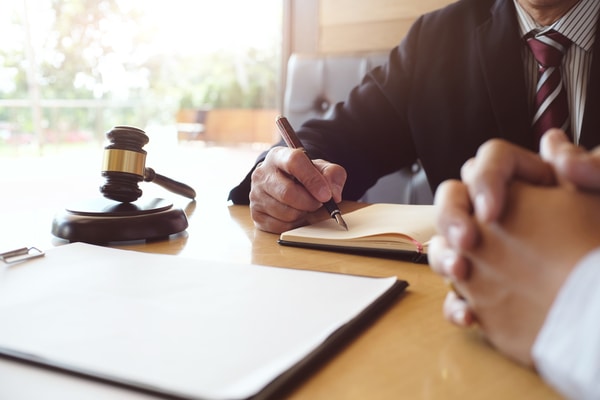
Accidents happen in the blink of an eye. A single moment can result in a long road to recovery as the injured party struggles to heal and handle the rising bills from property damage and medical expenses. Texas State law makes it possible for individuals injured in an accident due to the negligence of another party to get compensation through personal injury law. However, these cases don’t always have the anticipated outcome for the injured party.
When this happens, the individual is still protected legally and can appeal the decision for a second chance. Understandably, many are unsure about what an appeal is and how it could potentially affect their personal injury claim. The dedicated personal injury team at the Hernandez Law Group, P.C. has created this guide to explain the process of an appeal to give our clients a clear understanding of what they can expect. Here is what you need to know:
Who Can Issue an Appeal After a Personal Injury Verdict?
Both the defendant and the plaintiff have the legal right to appeal a verdict in a personal injury case if they believe that the verdict was reached unfairly. In these cases, it is important to understand that appeals can only be argued based on issues of law and not because you were unhappy with the verdict. The appeal has to be able to prove that there was an error of law during your personal injury case.
Here are some common reasons why an appeal should be made:
- There was jury misconduct. This can include the jury discussing the case with people who were not on it, conducting their own independent investigation, concealing personal information that could influence their decision, or deciding the case with other jurors before all evidence was presented.
- The court’s decision to deny the testimony of an expert witness based on the witness not being an expert was incorrect. If the court denies your witness’s testimony because the court did not find them to be an “expert witness” when they were, then this can affect the outcome of your entire case.
- The jury received instructions from the judge regarding laws that did not apply in your case. This is a huge red flag and can show bias on behalf of the judge.
- There was a lack of evidence to justify the verdict or the verdict was against the law.
- The judge denied evidence that should have been allowed.
It is extremely important to have an experienced personal injury attorney on your side. They can help you determine if any of the above occurs during your case and defend your rights to a fair trial.
How Does the Appeal Process Work?
There are several steps in the appeal process. This is a basic overview:
Step 1: File a Notice of Appeal

The plaintiff’s or defendant’s attorney can file a notice of appeal within 30 days of the court’s initial decision on the case. The plaintiff will then be known as the “appellant” and the defendant will be known as the “appellee.”
Once the appeal is filed, the appellant will need to acquire a transcript of the court proceedings. They will then have 30 days to submit a brief to the court and other parties involved in the case.
Hernandez Law Group Insight: An Appeal Is Not a Reset Button On Your Case
It is important to note that an appeal is not a reset button for your original personal injury case. The appellate court will consider the records from your trial and decide whether there has been an error in the law. Once they have their verdict it can either reverse the original decision or remand the decision to a lower court for further action.
Step 2: Oral Arguments
In some cases, the brief will be followed by an oral argument from both parties. This generally happens in complicated personal injury cases where a number of factors potentially contributed to the original accident.
The oral argument will detail why the appealing party disagrees with the court’s initial ruling and outline the outcome that they seeks.
Once the oral arguments are over, the appeal has been officially “submitted” to the court. The entire case will be examined to see if there are any grounds for the appeal. If the claim is straightforward, it may not need the oral argument for the judgment to be reached.
What Is the Outcome of a Successful Appeal?

In a successful appeal of a personal injury case, the court will revise the initial verdict for damages. In some cases, they may remand the case to a lower court for a completely new trial.
It is important to note that appealing a personal injury case is a time-consuming and often expensive process. It should be reserved for cases where an unjust conclusion has been reached due to an error in the law. Always discuss with your personal injury attorney about the right course of action for your case.
Personal Injury Attorneys That Fight for You
The Hernandez Law Group, P.C. works around the clock for your case to ensure that you are getting treated fairly every step of the process. We take over the logistics of your case so that you can focus on recovery. We fight with everything we have to reach a just conclusion for your case and get you the compensation you deserve. Contact the Hernandez Law Group, P.C. for more information on our services or to schedule a free no-obligation consultation.
